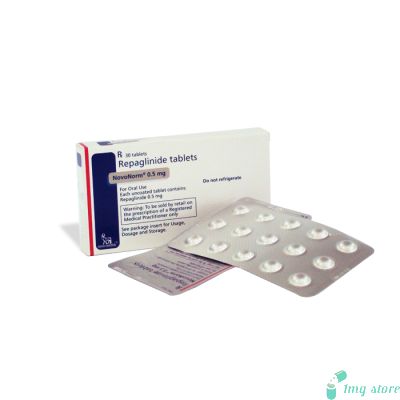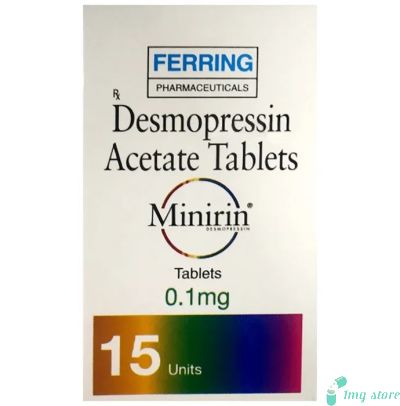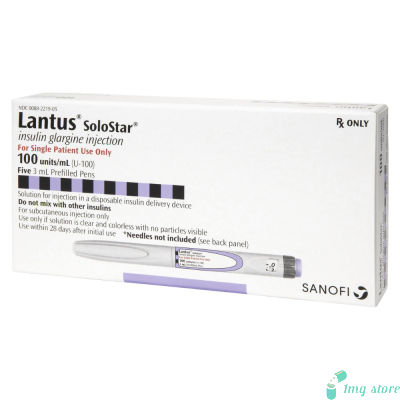Minirin Nasal Spray (Desmopressin)
Desmopressin nasal spray, commonly known by its brand names DDAVP and Minirin, is a medication primarily used to treat conditions related to inadequate production of vasopressin, a hormone that regulates water balance in the body.
Introduction to Desmopressin Nasal Spray (DDAVP, Minirin)
Desmopressin nasal spray, commonly known by its brand names DDAVP and Minirin, is a medication primarily used to treat conditions related to inadequate production of vasopressin, a hormone that regulates water balance in the body. This medication is available in the form of a nasal spray and is administered through the nostrils. Desmopressin nasal spray is considered an essential treatment for various medical conditions, and its proper usage is crucial to ensure its effectiveness and minimize potential side effects.
Dosage Information for Desmopressin Nasal Spray (DDAVP, Minirin)
Proper dosing is essential for the safe and effective use of Desmopressin Nasal Spray (DDAVP, Minirin). The dosage may vary depending on the specific medical condition being treated, the age and weight of the patient, and the individual's response to the medication. Here are the general dosage guidelines:
Diabetes Insipidus:
Initial dose for adults: 10 to 40 micrograms (mcg) daily, divided into 2 or 3 doses.
Initial dose for children: 5 to 20 mcg daily, divided into 2 or 3 doses.
The dose can be adjusted based on the patient's response and urine output.
Nocturnal Enuresis (Bedwetting):
Children 6 years and older: 10 to 40 mcg daily at bedtime.
The dose may be adjusted, but it should not exceed 40 mcg in 24 hours.
Von Willebrand Disease and Hemophilia A:
Dosage varies widely based on the specific bleeding disorder and the patient's response. It is typically administered before surgical procedures or to control bleeding episodes.
Missed Dose of Desmopressin Nasal Spray (DDAVP, Minirin)
If a dose of Desmopressin Nasal Spray is missed, it should be taken as soon as remembered. However, if it is close to the next scheduled dose, the missed dose should be skipped to prevent an overdose. Patients should not double the dose to make up for a missed one.
Overdose of Desmopressin Nasal Spray (DDAVP, Minirin)
Taking more than the prescribed amount of Desmopressin Nasal Spray can lead to an overdose. Overdose symptoms may include severe headache, confusion, drowsiness, vomiting, and, in severe cases, seizures. If an overdose is suspected, immediate medical attention should be sought.
Buy Desmopressin Nasal Spray:
You can purchase Desmopressin Nasal Spray/ DDAVP with a prescription from pharmacies and online retailers. Ensure you obtain it from a reputable source, and always follow your healthcare provider's instructions for use.
Desmopressin Nasal Spray Reviews:
Reading reviews from individuals who have used Desmopressin Nasal Spray can provide insights into its effectiveness and potential side effects. However, it's essential to remember that individual responses to medications can vary, so consult your healthcare provider for personalized guidance.
Precautions When Using Desmopressin Nasal Spray (DDAVP, Minirin)
To ensure the safe and effective use of Desmopressin Nasal Spray, certain precautions should be taken:
- Medical History: Inform your healthcare provider of any medical conditions you have, especially if you have a history of kidney problems, heart disease, or high blood pressure.
- Hydration: Maintain proper hydration, as Desmopressin can lead to fluid retention. Ensure you drink enough water but follow your healthcare provider's guidance on fluid intake.
- Children and Elderly: Dosage adjustments may be necessary for children and the elderly, so follow your healthcare provider's instructions carefully.
- Pregnancy and Breastfeeding: Discuss with your healthcare provider if you are pregnant, planning to become pregnant, or breastfeeding, as Desmopressin use during pregnancy and lactation should be carefully monitored.
- Driving and Machinery: Desmopressin may cause dizziness in some individuals. It's important to be cautious when driving or operating heavy machinery until you know how the medication affects you.
Some of the specific indications for Desmopressin Nasal Spray (DDAVP, Minirin)
Desmopressin Nasal Spray has several medical uses:
Diabetes Insipidus: In Diabetes, It is used to manage the symptoms of diabetes insipidus, a condition characterized by excessive thirst and urination due to inadequate vasopressin production.
Nocturnal Enuresis (Bedwetting): Desmopressin is prescribed to children with primary nocturnal enuresis (bedwetting) to reduce nighttime urine production and improve dryness during sleep.
Hemophilia A and Von Willebrand Disease: In certain cases of hemophilia A and von Willebrand disease, Desmopressin can be administered to increase clotting factor levels and control bleeding.
Desmopressin Nasal Spray Price:
The price of Desmopressin Nasal Spray can vary depending on factors such as brand, dosage, and location. It's advisable to compare prices at different pharmacies or online platforms to find the best deal. Additionally, check if your insurance plan covers the medication to reduce out-of-pocket costs.
Some of the Secondary Effects of Desmopressin Nasal Spray (DDAVP, Minirin)
While Desmopressin Nasal Spray is generally well-tolerated, it may cause some side effects. Common side effects include:
Nasal Irritation: Mild irritation or dryness of the nasal passages can occur, but it usually subsides with continued use.
Headache: Some individuals may experience headaches as a side effect of Desmopressin Nasal Spray.
Nausea: Nausea is a less common side effect but may occur in some cases.
Nasal Congestion: Temporary congestion or stuffiness of the nose can occur, especially when first starting the medication.
Hyponatremia: In rare cases, overuse or inappropriate use of Desmopressin can lead to low sodium levels in the blood (hyponatremia), which can be a serious condition.
It's essential to report any unusual or severe side effects to a healthcare provider promptly.
Frequently Asked Queries About Minirin Nasal Spray (Desmopressin)
Q1. Can I use Desmopressin Nasal Spray for my child's bedwetting?
Answer: Yes, Desmopressin Nasal Spray is often prescribed for children with bedwetting (nocturnal enuresis). However, the dosage should be determined by a healthcare provider based on the child's age and needs.
Q2. Is it safe to take Desmopressin if I'm pregnant?
Answer: Discuss Desmopressin use during pregnancy with your healthcare provider. They will weigh the benefits against potential risks and monitor you closely if it's deemed necessary for your condition.
Q3. Can I continue taking NSAIDs for pain relief while on Desmopressin?
Answer: You can take NSAIDs, but be cautious. NSAIDs may reduce Desmopressin's effectiveness, so avoid excessive use. It's wise to consult your healthcare provider for guidance on pain management.
Q4. What should I do if I experience nasal irritation while using Desmopressin Nasal Spray?
Answer: Nasal irritation is common initially. It usually improves with continued use. If it persists or becomes severe, consult your healthcare provider for advice on managing this side effect.
Q5. Are there any dietary restrictions while using Desmopressin?
Answer: There are no specific dietary restrictions. However, maintaining proper hydration is important. Be mindful of your fluid intake, especially if you are using Desmopressin for diabetes insipidus, and follow your healthcare provider's recommendations.
Drug Interactions with Desmopressin Nasal Spray (DDAVP, Minirin)
Desmopressin Nasal Spray can interact with other medications or substances, potentially affecting its effectiveness or increasing the risk of side effects. Here are five points regarding drug interactions:
- NSAIDs (Nonsteroidal Anti-Inflammatory Drugs): NSAIDs, such as ibuprofen and naproxen, can decrease the effectiveness of Desmopressin, leading to increased urine production. Avoid excessive use of NSAIDs when taking Desmopressin.
- Tricyclic Antidepressants: Medications like amitriptyline and imipramine may enhance the antidiuretic effect of Desmopressin, potentially leading to water retention and hyponatremia. Careful monitoring is essential if used together.
- Selective Serotonin Reuptake Inhibitors (SSRIs): SSRIs like fluoxetine and sertraline may increase the risk of hyponatremia when combined with Desmopressin. Close monitoring is advised if these medications are taken concurrently.
- Carbamazepine: Carbamazepine can reduce the effectiveness of Desmopressin, so adjustments to the Desmopressin dosage may be necessary when taking this medication.
- Alcohol: Alcohol can increase the risk of dehydration, which may counteract the effects of Desmopressin. Limit alcohol consumption and maintain adequate hydration while using Desmopressin.
| Manufacturer | : | Ferring Pharmaceuticals |
| Equivalent Brand | : | Ddavp |
| Generic Search | : | Desmopressin |











